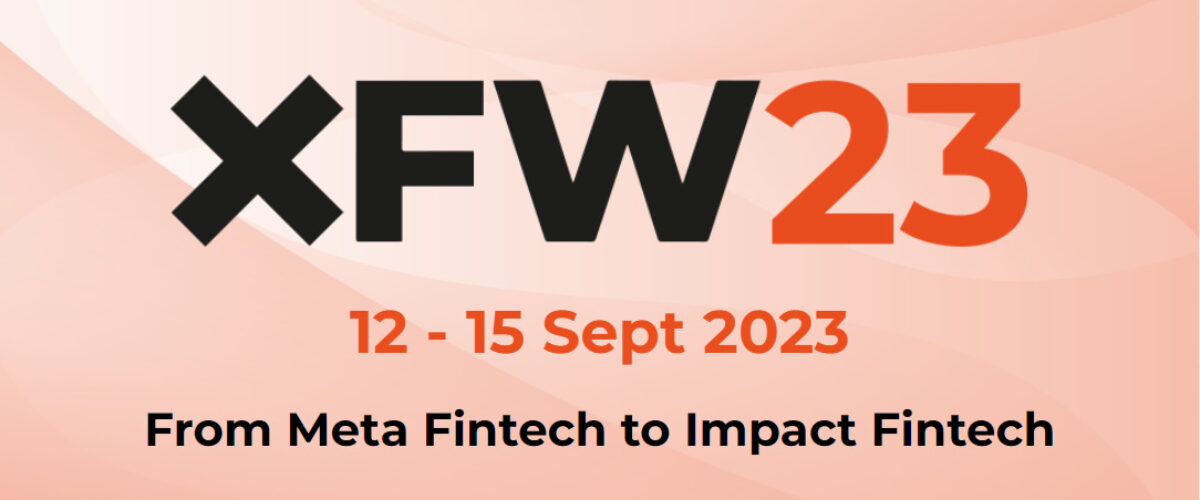Stay informed, stay ahead as we look into the future of 2024. See the latest insights on the future of AI in fintech, EU’s AI act, challenges and opportunities in the industry and so much more.
Klarna CEO on the evolution of digital payment tech (BNN Bloomberg)
Klarna Bank AB’s CEO, Sebastian Siemiatkowski, has indicated that the fintech company is leaning towards going public in the U.S. markets. The U.S. is Klarna’s largest market for revenue. Siemiatkowski emphasized the positive impact of evolving payment technologies, including detailed purchase analytics, on Klarna’s business. The company’s focus on buy now, pay later (BNPL) options has raised concerns about potential risks, especially related to lightly regulated interest rates. Siemiatkowski mentioned that around 70% of Klarna transactions are credit-based, and he expressed some concerns about consumer spending and the potential impact on credit services. Read more
How fintech is expanding the borders of financial inclusion (Fintech Futures)
Fintech Futures share the need for fintechs to do more in addressing the financial needs of disabled or vulnerable populations. While many fintech firms have successfully addressed issues in the financial services industry, there is a lack of focus on making financial services more accessible for individuals with disabilities. Some startups are emerging to fill this gap, such as Sibstar, which offers an app and debit card for people with dementia. Larger firms like Mastercard are also taking initiatives, such as launching the Touch Card designed for the visually impaired. The article emphasizes the opportunity for fintechs to create impactful solutions for underserved audiences and calls for more efforts in this direction. Read more
What’s driving the Nordic countries’ software export surge? (TechTarget)
Generative AI is making strides in the fintech industry, offering opportunities in fraud prevention and customer support. However, concerns about regulatory frameworks are often considered the culprits behind its slow-paced adoption. Ronen Assia, managing partner at Team8, discusses challenges and predicts specific regulations for industries like finance. Fintech goals for 2024 include replacing traditional roles with AI, especially in areas like financial advice and consulting. Despite advancements, human oversight remains crucial due to concerns about accuracy and data hygiene in financial services. xxLooking ahead, it is expected that generative AI will become a standard tool in fintech, leading to increased funding and innovation, particularly with stabilized interest rates. Read more
10 Global Venture Capital Predictions for 2024 (Endeavor)
The Endeavor Catalyst team predicts key trends in emerging markets for 2024. These include the practical application of AI beyond the hype, the rise of AI companies in Central and Eastern Europe, an increase in down rounds for startups, the emergence of new funders in emerging markets, a rediscovery of Latin America by global investors, a rise in regional IPOs in the Middle East and North Africa, African startups acquiring competitors, the likelihood of public companies going private or facing bankruptcy, growing investment in Asian GreenTech, and increased regulation leading to mainstream adoption of cryptocurrencies. These predictions reflect evolving dynamics in entrepreneurship, technology, and investment across diverse regions. Read more
No big fintech is going to IPO soon, says top European fintech investor (Sifted)
In a recent interview, Simon Schmincke, General Partner at VC firm Creandum, discussed the challenges faced by fintech companies in 2024. He highlighted that non-profitable fintechs are facing difficulties securing additional funding, and there is a realization among many that their business models may not be sustainable. Schmincke expressed concern about the oversaturation of money in certain sectors, drawing parallels with the influx of capital into AI and climate-related startups. He emphasized that the focus in fintech boardrooms is shifting to margins, with companies needing to address negative or slim unit economics. Regarding IPOs, Schmincke noted that many fintechs are considering an IPO route, as acquisition opportunities become limited. However, he expressed skepticism about the possibility of a large number of IPOs in 2024, as there may not be sufficient market capacity for the numerous private billion-dollar companies awaiting the IPO window. Read more
Davos 2024: AI most relevant for fintech development until 2029 (FinExtra)
A study by the Cambridge Centre for Alternative Finance and the World Economic Forum on the future of global fintech found that artificial intelligence (AI) is expected to be the most relevant factor for the development of fintech in the next five years, according to 70% of respondents. The study collected data from 227 fintech firms across various verticals and regions, investigating areas such as fintech business demographics, market performance, growth factors, regulatory perceptions, customer engagements, and activities with societal and economic benefits. The research also highlighted the importance of regulatory innovation to match the pace of financial innovation for sustained social and economic benefits from the fintech industry. Read more
VCs are not done betting on fintech (TechCrunch)
The fintech sector has faced challenges recently, with companies like Brex cutting staff to control costs. However, there are positive developments, such as Bilt Rewards raising a significant funding round at a higher unicorn valuation. Klarna, a Buy Now, Pay Later (BNPL) giant, is also making strategic moves for continued growth. Although there’s a shortage of fintech IPOs, venture capital is still flowing into the sector. GGV US compiled a list of 50 fintech startups that venture capitalists view positively, with a focus on subsectors like lending, treasury management, and the CFO stack. The challenges in the fintech narrative are attributed to startups raising large amounts at high valuations, leading to overhiring and misaligned equity prices with current norms. Read more
Moody’s AI Outlook: What Does it Mean for Finserv? (Fintech Magazine)
Moody’s Investors Service has released its 2024 AI outlook, discussing the impact of AI in various industries, including financial services. The report suggests that while AI implementation in financial services will progress swiftly in 2024, businesses should be cautious about rolling out AI too rapidly. Despite significant AI implementation, Moody’s doesn’t expect it to have a significant impact on credit quality over the next 12 months. The report notes that funding in AI is expected to grow, with investments in model improvement and edge computing. The banking, financial services, and insurance sectors are predicted to experience profound benefits from AI applications, leading the charge for adoption across industries, with widespread adoption expected by 2026. However, businesses are cautioned to be aware of the risks and potential competition, as new market entrants leveraging AI may outperform legacy players, affecting various industries, including financial services. The anticipated new set of regulations around AI use and best practices, such as the EU’s AI Act, may impact AI rollout plans for financial services companies. Read more
Understanding the impact of EU’s AI Act on financial services (Fintech Global)
The European Union (EU) has tentatively agreed on the terms of the AI Act, marking a significant step toward regulating artificial intelligence (AI). The AI Act adopts a risk-based approach, categorizing AI systems based on the level of risk they pose, ranging from minimal to unacceptable. High-risk AI systems, particularly those affecting health and safety, will face stringent requirements, including robust risk-mitigation systems, high-quality data sets, and human oversight. The act also addresses AI systems posing unacceptable risks to human rights, categorically banning them and mandating full transparency. In the context of financial services, the adoption of AI regulations is seen as imperative for guiding responsible AI adoption and mitigating potential negative impacts. Firms like Saifr are leveraging AI to reinforce regulatory compliance within financial services, ensuring outputs align with regulatory standards. Read more
Why Insurtech Remains Steady As Other Fintech Segments Falter (Forbes)
In 2023, the fintech industry saw challenges, with payments companies facing declines in revenue and funding. In contrast, insurtech remained stable, maintaining funding above $1 billion since 2019. The resilience of insurtech is attributed to its emphasis on business-to-business (B2B) solutions, addressing complex areas of the insurance value chain. Companies like Hyperexponential exemplify the appeal of B2B insurtechs, drawing investor interest by improving core functions with technologies like machine learning. The passage anticipates a positive year for B2B insurtechs in 2024, particularly those leveraging generative artificial intelligence (Gen AI). Despite not being a media darling, insurtech holds appeal for investors due to its profitability and advancements in technology. Read more
–
Do you have any news to share? Please put [email protected] on your press list.
Curious to read and find out more from fintech? Then subscribe & read our full newsletters here. Stay tuned for more insights following up this week regarding the news piece.



